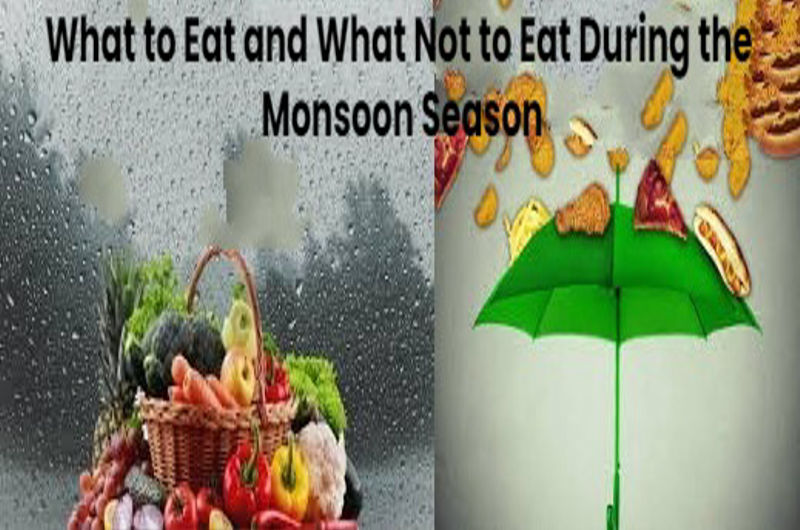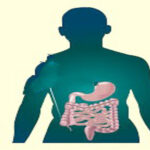The monsoon season brings relief from the scorching summer heat, but it also brings a host of health challenges. High humidity, waterborne diseases, and weakened immunity make it crucial to follow a well-balanced monsoon diet to stay healthy. Eating the right foods can boost immunity, aid digestion, and prevent infections, while consuming the wrong ones can lead to stomach upsets, allergies, and infections.
In this article, we will explore the best foods to include in your monsoon diet, what to avoid, and essential tips to stay fit during the rainy season.
Why Is a Monsoon Diet Important?
It is easier for bacteria, viruses, and fungus to grow during the rainy season.Contaminated water, spoiled food, and damp surroundings increase the risk of infections like dengue, malaria, cholera, and stomach flu. Your best defense is a robust immune system, and a well-thought-out monsoon diet may support overall health.
Best Foods to Eat During Monsoon
1. Warm Herbal Teas and Soups
Sipping on ginger tea, tulsi tea, or peppermint tea can boost immunity and keep infections at bay. Hot soups with vegetables, lentils, or chicken provide warmth and essential nutrients.
2. Seasonal Fruits
Opt for fruits rich in antioxidants and vitamin C, such as:
– Pomegranates (boost immunity)
– Apples (aid digestion)
– Pears (keep you hydrated)
– Jamun (prevents infections)
Avoid overly juicy fruits like watermelon and muskmelon, as they may cause bloating.
3. Dry Fruits and Nuts
Almonds, walnuts, and dates provide energy and strengthen immunity. Soak them overnight for better digestion.
4. Whole Grains and Legumes
Include:
– Brown rice (rich in fiber)
– Oats (boost digestion)
– Moong dal, known for being light and easy to digest
– Quinoa (protein-rich)
These foods prevent bloating and keep your gut healthy.
5. Probiotic Foods
A strong immune system is your best line of defense, and a thoughtful monsoon diet may promote general health.
6. Bitter Vegetables
Bitter gourd, neem, and fenugreek help detoxify the blood and prevent infections.
7. Garlic and Turmeric
These natural antibiotics fight bacteria and viruses. Incorporate them into soups, curries, or a glass of warm milk.
8. Light and Home-Cooked Meals
Avoid street food and opt for freshly prepared meals at home to reduce the risk of contamination.
Foods to Avoid During Monsoon
1. Leafy Greens
Spinach, cabbage, and lettuce may contain larvae and dirt due to excess moisture. Wash them well and boil them properly if you plan to eat them.
2. Street Food
Street sellers may produce chaat, pakoras, and fried foods in unsanitary circumstances, which raises the risk of stomach diseases.
3. Seafood
Since the monsoon season is when fish and prawns breed, they are vulnerable to contamination. Steer clear of undercooked or raw fish.
4. Dairy Products
Milk and paneer spoil quickly in humid weather. Consume fresh dairy in moderation or opt for boiled milk.
5. Carbonated and Sugary Drinks
Sodas and packaged juices can weaken immunity. Restrict yourself to herbal teas, coconut water, or warm lemon water.
6. Fried and Oily Foods
Excess oil slows digestion and can cause acidity. Limit samosas, chips, and deep-fried snacks.
7. Raw Salads
Raw vegetables may carry bacteria. Lightly steam or sauté them before eating.
Essential Monsoon Diet Tips
1. Stay Hydrated – Drink boiled or filtered water to avoid waterborne diseases.
2. Eat Small, Frequent Meals – Helps in better digestion.
3. Avoid Overeating – Heavy meals can cause bloating and indigestion.
4. Wash Fruits and Vegetables Properly – Use saltwater or vinegar to remove germs.
5. Include Immunity-Boosting Spices – Ginger, black pepper, and cinnamon keep infections away.
6. Avoid Leftovers – Freshly cooked meals are safer during monsoon.
Conclusion
Following a monsoon diet rich in immunity-boosting foods and avoiding contaminated or heavy meals is key to staying healthy this rainy season. Incorporate warm beverages, seasonal fruits, whole grains, and probiotics into your diet while steering clear of street food, fried snacks, and raw salads.
By making mindful food choices, you can enjoy the monsoon without falling sick. Stay hydrated, eat clean, and strengthen your immunity to make the most of this beautiful season!


